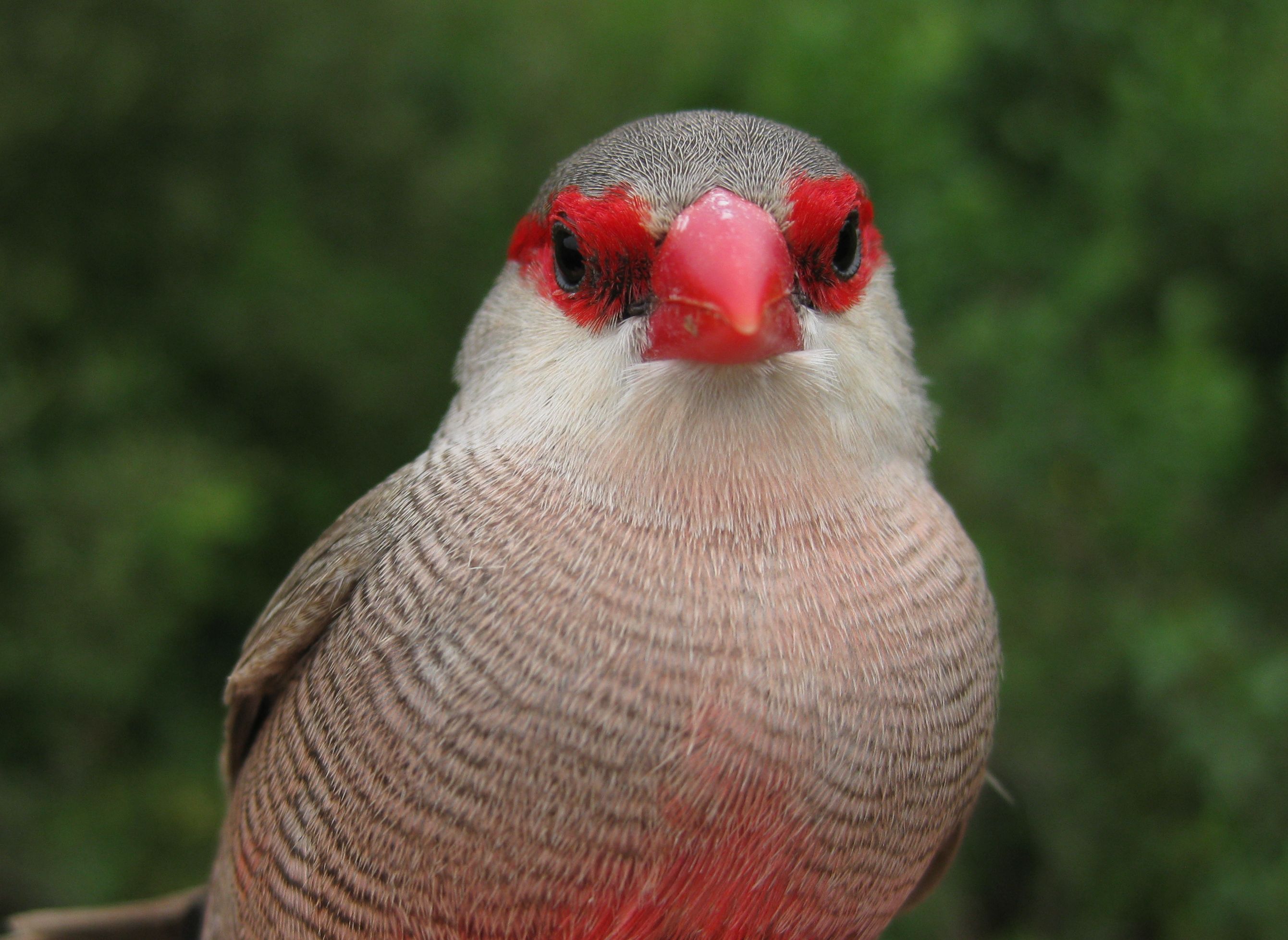We all know about
people’s personalities, and anyone with a dog or a cat will also tell you about
their temperaments. More surprising, though, is how many others, from octopuses
to frogs and even spiders have them. So why behave according to a personality,
when flexibility could allow smarter choices?
A study by Portuguese
researchers now exploits an original approach - where the invasion of a
territory by common waxbills is proxy for the bird evolution over time – to
find that the emergence of different personalities can be linked to climate
variation. The work reveals that in regions with more variable climate, birds
explore less autonomously and are more attentive to their peers, than those in
areas with a more stable weather. “This is probably because” –
says Carlos Carvalho the first author of the research - “with resources and
food more unpredictable, social learning, in opposition to bold exploration,
allows better informed choices increasing the animals chances of success”.
For a long time animal
personalities were seen as random variation by researchers worried of
anthropomorphism accusations. But with the discovery that the behavioural
differences were often for life and extremely common, the scientific world's
interest was eventually triggered. Researchers went to discover that animal
personality comprised traits very similar to ours, from aggressiveness and
boldness to docility, sociability and cooperativeness. But the reason why these
different temperaments co-existed within a species remained less clear.
Ultimately, a flexible behaviour should allow animals to adapt better and,
consequently, improve survival as well. So what is the point of fixed ones
(personalities)
Using a recent
invasion in Portugal of the common waxbill (Estrilda astrild) in the
work now published, Carvalho, Gonçalo and colleagues attempt to answer this
question.  Waxbills are small birds native to Sub-Sarah Africa, which, due to
Waxbills are small birds native to Sub-Sarah Africa, which, due to
their popularity as pets and escape from captivity, are now everywhere. Their
Portuguese colonization is recent, around 40 years, but particularly well
documented - from the climate and ecology of the different colonized
environments, to the size and age of the different waxbill populations. The
scientists’ idea was to use the birds’ expansion as a simulacrum for their
evolution over time and, with the help of the colonization data, search for
links between behavior/personality and ecology
Common waxbill
Analysis of various
waxbill populations discovered that personality differences emerge rapidly,
with birds in areas with more variable climates exploring less and responding
more to social stimuli than those in more stable weather conditions. This
suggested that they relied more on cues from the other animals in what seemed
to be an adaptation to their unstable environment. After all different
individuals vary in their abilities and experience so to be attentive to
conspecifics should increase the efficiency of problem solving and a good idea
in unpredictable environments.
In more stable
environments, however, the birds could afford a “not think much” approach and
make decisions based on past experiences. Having a fast response had the
advantage of making them more competitive even if the chances of obsolete
responses increased. This was not much of a problem though since in stable
environments the location of food and resources is more predictable.
The next step was to
investigate how the different behaviors emerge. “They didn’t change with
age or season suggesting a genetic or long-term developmental basis ” - explains
Cardoso the senior scientist in the study - “ So, we investigated a gene known
to be implicated in avian personality but could find nothing.”
This, however, still
does not invalidate a genetic cause behind waxbills’ personalities – after all
not only genetic influences tend to be the sum of many genes, but also
behavioral genetic is still much in its infancy with much (other genes) to be
found.
In conclusion, since
environmental changes (in this case climate) can cause populations to rapidly
diverge in personality, then environmental fluctuations over time (very common
in nature) are probably an important factor contributing to keep a mix of
distinct temperaments within populations.
Understand what
determines behavioural changes in animals is important for animal management
and conservation but Gonçalo Cardoso points that the results can be relevant for
humans as well.
“The study of animal
behaviour allows us to ask questions that would be much more difficult to test
with human personality, because cultural adaptations can make it hard to
demonstrate the underlying biological and psychological influences. For an
extreme example, think of those hyperactive children that, like the waxbills in
more stable environments, are impetuous and less motivated towards conventional
social learning – could animal behaviour help us understand this type of
diversity among people too?”
Behavioral Ecology May 2013 doi:10.1093/beheco/art034, Personality traits are
related to ecology across a biological invasion, Carlos F. Carvalho, Ana V. Leitão, Caterina Funghi, Helena R. Batalha, Sandra Reis, Paulo Gama Mota, Ricardo J. Lopes and Gonçalo C. Cardoso, http://beheco.oxfordjournals.org